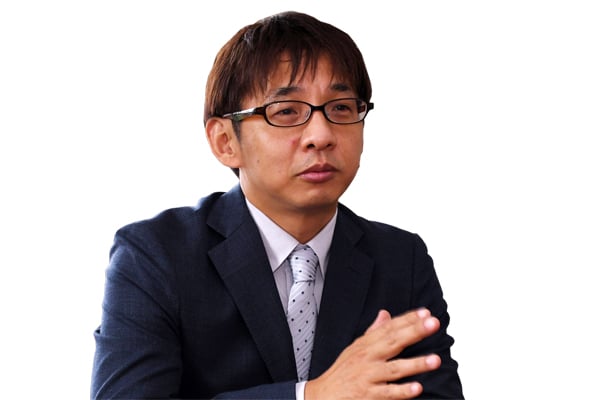Prime
Refugees, hosts can co-exist peacefully

Japanese government overseas aid agency, JICA, chief representative Uchiyama Takayuki. PHOTO/ Rachel Mabala
What you need to know:
“To have a harmonious co-existence between refugees and hosts there should be deliberate activities jointly carried out...
While growing up, it is often hard for many to accept vulnerable relatives that parents bring into homes. The resentment and sometimes concern is having to share love, beds, food, and even have pocket money for school reduced because of the extended family.
This is the situation faced by refugee hosting communities where there is competition for resources; land, shelter and basic needs. This creates tension leading some host communities to become hostile to the refugees. This hostility usually breeds conflict.
On Monday, the world marked World Refugee Day. The day celebrates refugees in honor of their strength and courage. The theme for this year was ‘Whoever. Wherever. Whenever. Everyone has a right to seek safety’, urging everyone to treat people who have been forced to flee, regardless of who they are, what they believe, or where they come from, with dignity.
Uganda is the largest refugee host nation in Africa with an estimated 1.5 million refugees, according to the United Nations High Commissioner for Refugees (UNHCR). The refugees are largely from South Sudan and the Democratic Republic of Congo (DRC). This refugee influx has understandably mounted pressure on existing resources and created tensions in all refugee hosting regions.
However, to have a harmonious co-existence between refugees and hosts there should be deliberate activities jointly carried out by refugees and refugee hosting communities.
One of such activities is sports, which can unite nations and bring people together. Good relationships between refugees and host communities are important in fostering peace between the parties, which in turn contributes to development.
Sports events bring together the majority of settlement occupants i.e. children and youth. Through the sports activities, there is an opportunity for the host communities and refugees to interact, discuss their challenges, and recognise the significance of working together.
As of January 2022, Uganda refugee statistics estimated that Adjumani District has a total of 19 settlements with a population of 244,014 and 32,487 households. Of these, 84 percent (204, 722) are women and children and 3 percent (8,039) are elderly.
As of 2020, Adjumani had a total host community of nearly 250,000, which means refugees and nationals are almost the same in terms of population. There have been instances where the population scrambles for available resources with host communities.
The view of the Humanitarian-Development-Peace Nexus is very important for peaceful co-existence. As a development agency, JICA started the project called PROCEED in November, 2021 to strengthen resilience in refugees and host communities.
Implemented in all districts of West Nile, refugee hosting districts and affected districts by the ministry of local government, PROCEED is building on the achievements of the previous Project for Capacity Improvement of Local Government for Strengthening Community Resilience in Acholi and West Nile sub-regions (WACAP).
The main goal is the capacity improvement of local government officials to be able to plan and improve resilience among refugees and host communities, foster integrated planning covering refugee and refugee host communities’ needs or priorities in district development plans, and respond to emergencies.
Working with the Office of the Prime Minister, JICA has provided a Refugee Advisor to enable the government to respond to the resettlement of refugees.
The advisor is working with the OPM to ensure the implementation of refugee policies, coordination with other development partners, and make resources available for refugee resettlement related work.
These interventions will contribute to mutual understanding between refugees and host communities to support the open door policy of Uganda.
Mr Uchiyama Takayuki, Chief Representative, JICA Uganda




